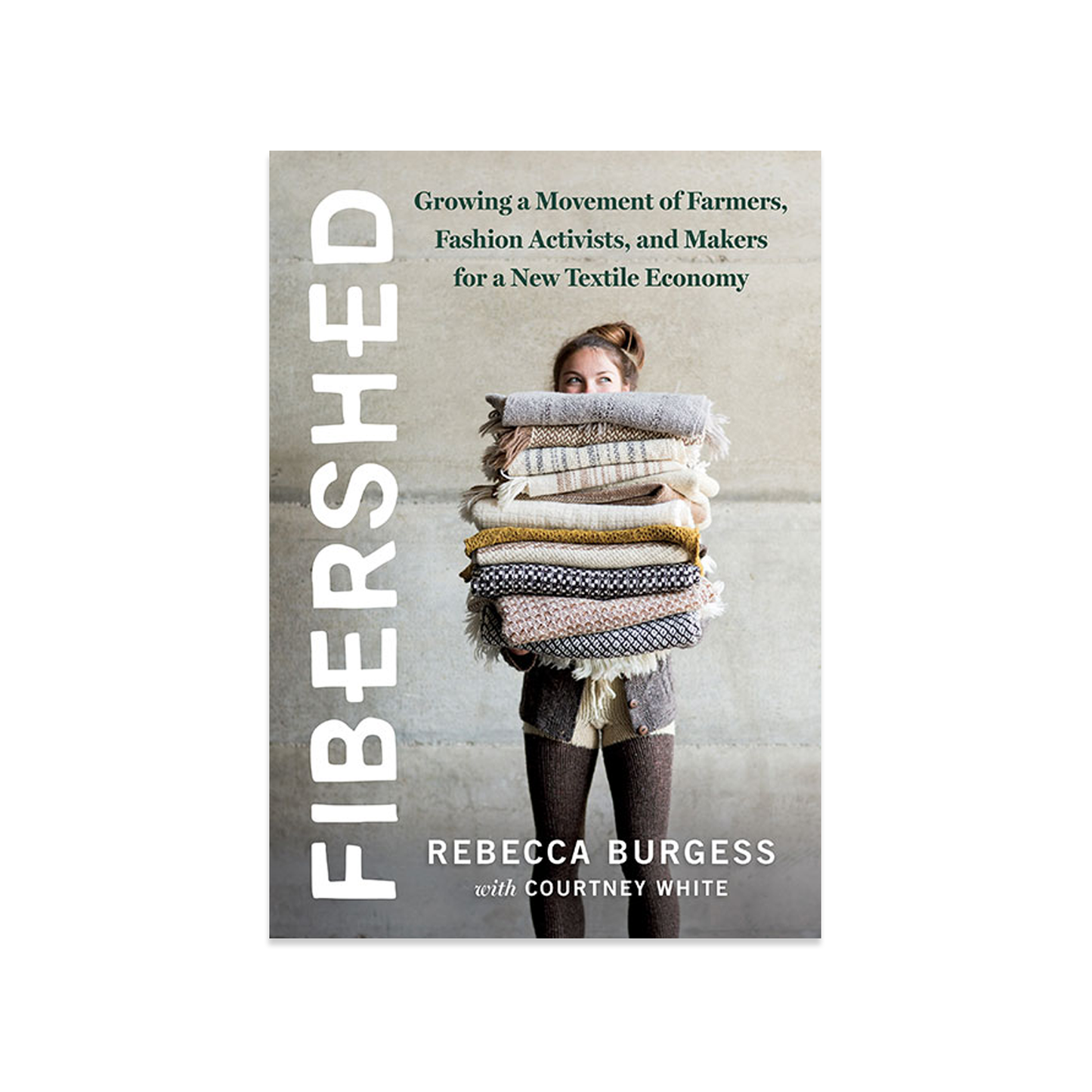Fibershed
Couldn't load pickup availability
: Growing a Movement of Farmers, Fashion Activists, and Makers for a New Textile Economy
By Rebecca Burgess with Courtney White
A new “farm-to-closet” vision for the clothes we wear.
There is a major disconnect between what we wear and our knowledge of its impact on land, air, water, labor, and human health. Even those who value access to safe, local, nutritious food have largely overlooked the production of fiber, dyes, and the chemistry that forms the backbone of modern textile production. While humans are 100 percent reliant on their second skin, it’s common to think little about the biological and human cultural context from which our clothing derives.
Almost a decade ago, weaver and natural dyer Rebecca Burgess developed a project focused on wearing clothing made from fiber grown, woven, and sewn within her bioregion of North Central California. As she began to network with ranchers, farmers, and artisans, she discovered that even in her home community, there was ample raw material being grown to support a new regional textile economy with deep roots in climate change prevention and soil restoration. A vision for the future came into focus, combining right livelihoods and a textile system based on economic justice and soil carbon-enhancing practices. Burgess saw that we could create viable supply chains of clothing that could become the new standard in a world looking to solve the climate crisis.
InFibershed,you'll learn how natural plant dyes and fibers such as wool, cotton, hemp, and flax can be grown and processed as part of a scalable, restorative agricultural system. You'll also learn about milling and other technical systems needed to make regional textile production possible.
Fibershedis a resource for fiber farmers, ranchers, contract grazers, weavers, knitters, slow-fashion entrepreneurs, soil activists, and conscious consumers who want to join or create their own fibershed and topple outdated and toxic systems of exploitation.
Rebecca Burgess has two decades of experience working at the intersection of ecology, fiber systems, and regional economic development. She is the author of the best-selling book Harvesting Color, a bioregional look into the natural dye traditions of North America. She has taught at Westminster College, Harvard University, and California College of the Arts. She serves on the leadership council of the Center for Regenerative Agriculture and Resilient Systems at Chico State University, as Board Secretary for Hukuuiko (a non-profit serving the Coast Miwok Tribal Council), and on the board of the Carbon Cycle Institute. And she's the executive director of Fibershed, the organization.
Courtney White is a former archaeologist and Sierra Club activist who dropped out of the "conflict industry" in 1997 to cofound the Quivira Coalition, a nonprofit conservation organization dedicated to building a radical center among ranchers, conservationists, public land managers, scientists, and others around practices that improve economic and ecological resilience in western working landscapes.
In 2005, Wendell Berry included White's essay "The Working Wilderness" in his collection The Way of Ignorance. White is the author of Revolution on the Range; Grass, Soil, Hope; The Age of Consequences; and Two Percent Solutions for the Planet. He is also the author of The Sun, a mystery novel set on a working cattle ranch in northern New Mexico. He lives in Santa Fe.
Chelsea Green Publishing, 2019, 7 x 10 inches, 288 pages.


